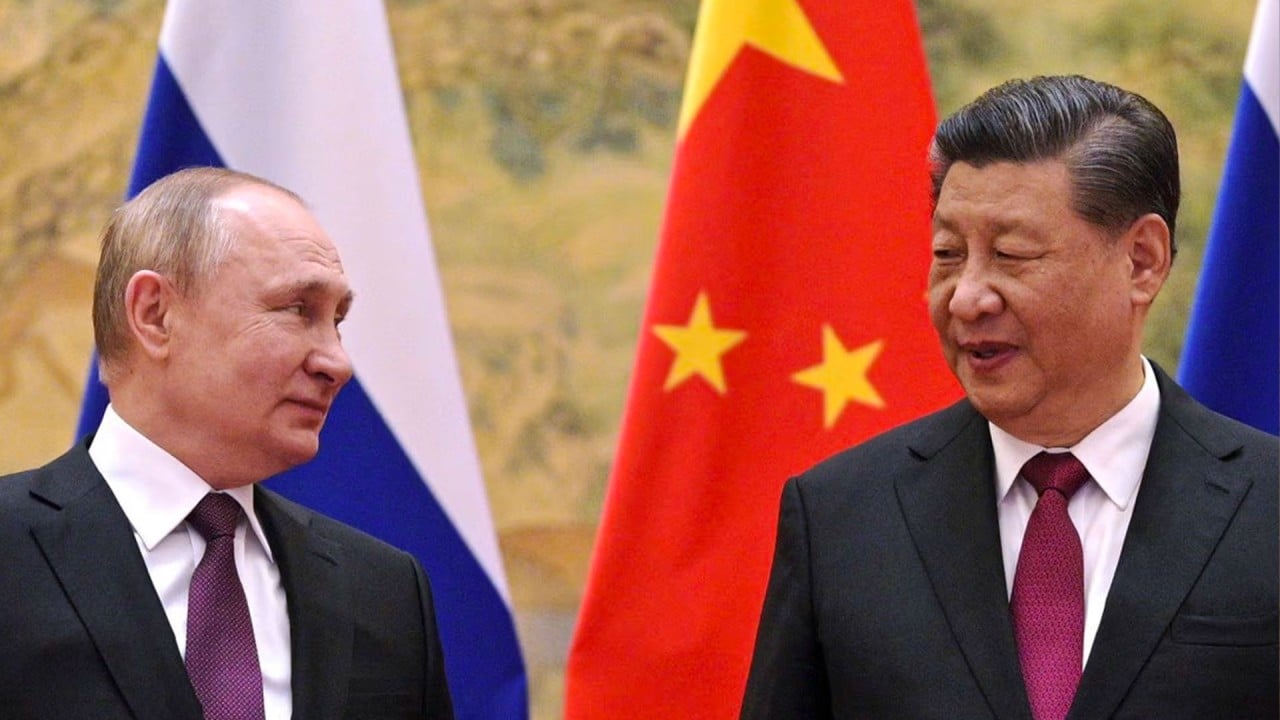
Chinese tech firms see warning shot from US sanctions on Singaporean firm, but enforcement could be challenging
- With fresh US sanctions last week on 21 entities, including a Singaporean electronics wholesaler, risks to Chinese firms over exposure to Russia are increasing
- The US still relies on fear and self-enforcement, experts say, as China is not collaborative with sanctions enforcement
The latest sanctions from the US covering a number of businesses for their ties to Russia following its invasion of Ukraine, including a Singaporean entity, acts as a warning shot to Chinese businesses with exposure to the market, analysts say.
The US Treasury Department on Thursday imposed fresh sanctions on 21 entities and 13 people, including Joint Stock Company Mikron, Russia’s largest chip maker, and Alexsong Pte Ltd, a Singapore-based telecoms electronics wholesaler that allegedly facilitated transactions that helped Russia evade sanctions.
“We will continue to target Putin’s war machine with sanctions from every angle until this senseless war of choice is over,” Secretary of the Treasury Janet Yellen said in a statement on Thursday.
The sanctions freeze all US assets of the targeted entities and individuals, and generally ban American companies from trading with them.
Western sanctions on Russia hit Shenzhen’s online merchants in China
The inclusion of Singapore-based Alexsong, which boasts “29 years of expertise in the wholesale market”, is significant, as it represents a potential “secondary sanction risk” that many Chinese businesses are trying to manage. The US government has also warned that Chinese companies could be sanctioned if they are found to be helping Russian partners to skirt sanctions.
Angela Zhang, an associate professor of law at the University of Hong Kong and author of the book Chinese Antitrust Exceptionalism: How The Rise of China Challenges Global Regulation, said that the sanctions act as a warning to companies all over the world, but especially those in China.
“I believe Chinese companies are on high alert at the moment given China’s close ties with Russia,” Zhang said.
China is a major market for Mikron. In 2010, the company expanded its business and began exporting radio-frequency identification (RFID) chips to China – commonly found in access cards for places like offices and hotels – after seeing its export revenues slide.
It sold more than 10 million chips to Chinese electronic card manufacturers and system integrators in 2010, according to a report from the Russian technology news portal TAdviser.
Mikron declined to comment on the sanctions and its business exposure to Chinese companies. Alexsong also declined to comment on its alleged role in violating US sanctions.
“Secondary sanctions is a very big concern for Chinese companies,” Benjamin Kostrzewa, a foreign legal consultant at Hogan Lovells and a former assistant general counsel with the Office of the US Trade Representative (USTR), said during an online seminar hosted by Centre for Chinese Law at the University of Hong Kong.
Under the new export control rules, any company in China exporting products containing US microchips to Russia would be subject to penalties, according to Kostrzewa.
Still, enforcing the sanctions in China will likely be more difficult than in Singapore, according to Jacob Kirkegaard, a senior fellow at the Peterson Institute for International Economics. Corporate transparency is more limited in China, he said, and the government is not as collaborative on sanctions enforcement.
“The US needs to rely on fear to ensure self-enforcement by Chinese firms afraid of the ‘big hammer’ that falls if they are caught in the end,” Kirkegaard said.
Chinese tech firms were making progress in Ukraine before Russia marched in
“Chinese companies, particularly Huawei, have already taken pains to publicly clarify that they are not stepping into the breach left by US sanctions,” said Kendra Schaefer, partner and head of tech policy research at Trivium China.
However it’s still possible for Chinese companies to wait for a less politically contentious moment to fill the gap, Schaefer added.


